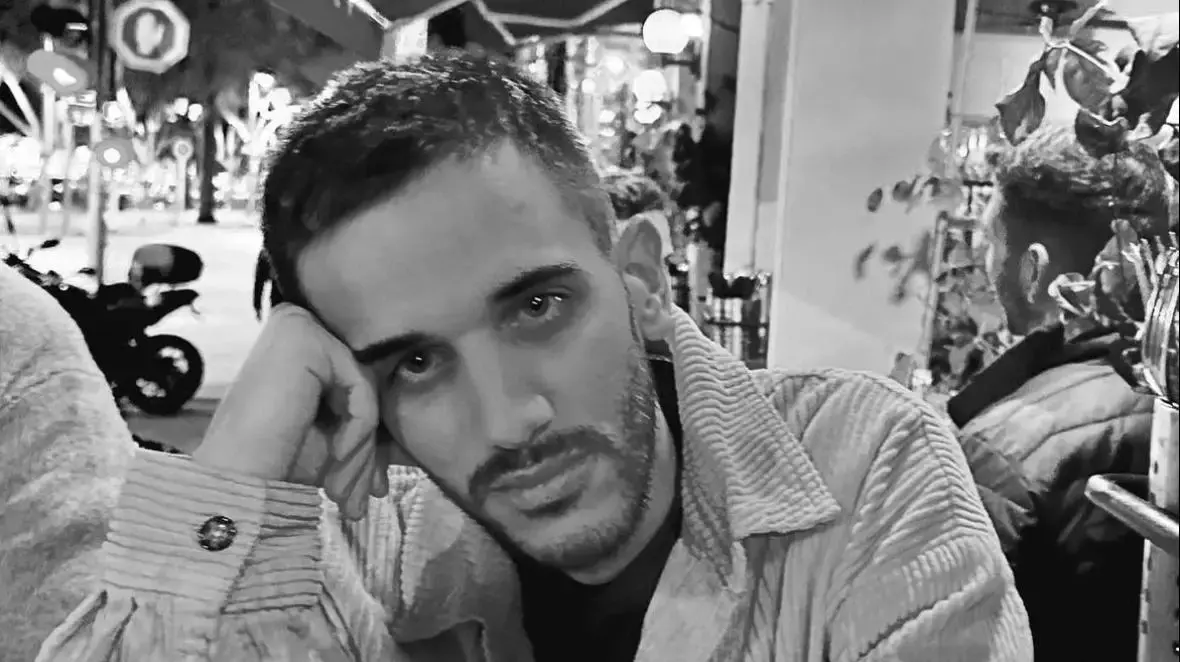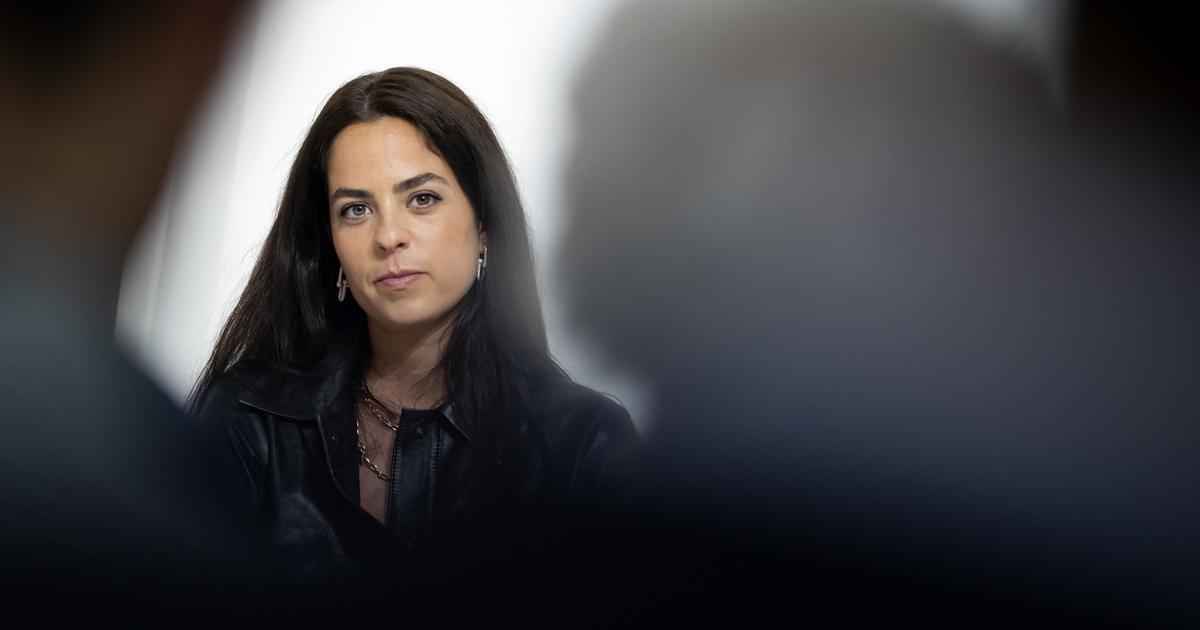The active career is over, but Felix Neureuther is still present in public, among other things as a TV expert.
In the Tagblatt interview, the Garmisch-Partenkirchner talks about his new job, what he would do differently as a functionary and why his home town should apply for the 2027 World Cup.
Mr. Neureuther, how do you like being an expert now?
Very good.
Skiing was my life and it doesn't get out of my heart that quickly.
But I miss the proximity to the slopes, the snow under my feet, that's different this year.
It is important to be in contact with former colleagues and coaches.
This season you can see pictures on the monitor of the race locations, but you have no idea what it is really like on site.
You don't know anything about the route, you can't go to the slopes to see it.
Then I have to try to reach my trainers - I still say mine (smiles) - and get up-to-date information.
And if something is wrong from your point of view, pick up your mobile phone straight away ...
If things don't go the way fairness demands, then yes.
You're still too much of an athlete for that, aren't you?
Yeah, way too much.
I couldn't see that at the World Cup parallel races in Cortina and thought something had to change.
I know Markus Waldner very well, he's a top man.
I think about skiing like him.
But why can't you react promptly?
Just because something alien to practice is in the regulations doesn't mean you have to stick to it if, as in this case, the slope changes unfairly.
All you have to do is pick up a drill, move a gate, and then everything is good.
I talked to Markus for an hour on the way home - a very good conversation.
What was it about?
How to do things better.
We have to make skiing more compliant for television.
When you see the odds of biathlon and ski jumping as they moved away, that's huge.
We also want such quotas, because skiing is so important because many people can practice it themselves.
Have you been criticized for your words on TV?
Of course I get criticism, that's normal.
But I am the way I am and I will not let myself be bent.
What do the athletes say?
When I talk about abolishing disciplines and shortening the racing calendar, the athletes involved come to me.
Of course, they have their own view of things.
But this is about the future of racing.
Anyone can express themselves and make suggestions, but they should not be beneficial for one person or an individual association, but for the entire sport.
Of course, I also represented my interests in the past, so that's not a reproach to the athletes.
You have a completely different view of sport than you did when you were active, right?
Of course, because the perspectives open up.
As an athlete, you're in the machinery.
You train, you drive to the World Cup race, you train, you drive to the next race and: you have to deliver.
In my last year as an athlete, the point of view has already changed.
You perceive things differently - nature, the place, the passion for racing.
One becomes more grateful.
In the meantime I also know the media world a lot better.
I was never one to see the media or journalists as an annoyance.
Just because you drove badly and didn't feel like it, you don't ignore them, because they make an important contribution to everything that is going on.
I am happy and grateful when many come to the races and shed light on all the positive and negative sides of the sport.
They say that more athletes are needed at the official level. But you are not the right person for it. Why?
I would be too radical.
That's why I don't fit into this structure.
I would be too offensive, also because I would demand changes too quickly.
But that doesn't work in these encrusted structures.
As an athlete, it's like this: if something doesn't work, you change it - not tomorrow, not in an hour, but immediately.
Only then can I break new ground and improve myself.
But at the functionary level you need extremely perseverance.
I just don't have it.
What points would you address?
Skiing has to become more understandable for the spectator again.
I would mercilessly cut disciplines.
Slalom, giant slalom, downhill - they used to be there.
Today there is also the Super-G, the combination that has been changed five times.
Then there was the parallel slalom, first in cities, then also in ski areas.
Then there was the parallel giant slalom, now only parallel races.
There is also the team competition.
Who should check it out?
This is too much.
But that's the case in every sport.
In biathlon or swimming: what is the value of an individual gold medal?
It's all so bloated, only due to TV time, that it's no longer good for sports.
Are there any other approaches?
You have to make skiing, not just the races, but also all ski areas, sustainable.
It's a process, but you have to face it.
We no longer need new ski slopes, rather we should design the existing ones in such a way that I can move on them with a good feeling.
The focus must be on the ecological ski track that I draw in the snow.
As skiers, we will always demand something from nature, but the relationship has to be right.
I would make a tough decision to ban training on the glaciers from the end of April to the beginning of October.
The ten-year-old children now go to 4000 meters in July to train there.
And that's supposed to be good?
Certainly not for the environment.
Even if many lift operators or glacier ski companies think that I cannot suggest something like that.
But I'm over it, I'm thinking of the next generation.
In addition, our youngsters lose the fun of racing too quickly if the environment professionalises so early.
If my kids want to ski races, I wouldn't take them to the glaciers in July.
They should then swim, play with the ball or do something else.
How do you plan to implement your visions anyway?
You have to constantly draw attention to it and put such thoughts up for discussion, again and again.
It's difficult because the system is very commercial.
In principle, there is nothing to be said against this, as I and our entire industry also benefit from this.
It depends on proportionality and on preventing excesses.
It shouldn't just be about whether, for example, an association like the FIS more or less turns over a million a year, but about whether you should only read your goals in terms of sales or, perhaps better, of the appreciation of sport.
That's why I'm in favor of putting former athletes in positions of responsibility.
FC Bayern Munich is showing the way.
He brings his former players into the management positions, which, as you can see, the performance of the club does very well.
Then for areas such as finance or administration, top executives outside of sport.
That makes a very good mix.
So you want to use your celebrity for social and sporting topics?
Yes, on the one hand, as an athlete, you are very lucky to be able to make your eyes light up.
But many athletes are no longer aware of that these days.
It used to be different.
As stupid as it sounds: For me, a child's laugh while signing an autograph was worth a thousand times more than winning a race.
I got the message from an affected person, whose children are seriously ill, that their favorite book is "Ixi, Mimi and the magic muesli".
It brings tears to my eyes.
It's just nice when you can create something that children can draw on.
What are the next projects?
First the World Cup final.
In addition, I try to encourage children to take part in sports through my foundation and my initiative “Move yourself smart”.
The situation around Corona is a disaster for the children.
In addition, a film and book project with National Geographics is planned to draw attention to the importance of the mountains and nature.
And how we might be able to ensure that the next generations also have something of this beauty.
Also something crazy like jumping from the Olympic hill or a ride on skis through an ice channel?
The jump off the hill wasn't that crazy.
I did that when I was young.
But this time it bent my toenails open on landing so that I had to drill two nails open.
The ride in the ice channel was less painful.
But to be honest, I overestimated how much it pushes you into the corners.
+
He didn't miss the tracking shot on the Kandahar this year.
© PETER KORNATZ
How fast were you
Not so slowly (laughs).
The problem is simply that you cannot brake.
But it was a lot of fun.
Are these all your ideas?
Yes, I just want to convey new aspects and impressions to the viewer.
I also have a lot of fun myself getting new impressions.
Do you even have more free time compared to an active career?
That is other free time.
As an athlete, I was often out and about for two or three weeks at a time.
It has always been difficult for me because I am very drawn to home.
Now I make sure that I can put the children to bed in the evening or get up with them in the morning and we can have breakfast together.
As an athlete, your day was always well-timed. How does he look today?
It is important to have a certain routine, even if you no longer participate in competitive sports.
Living like this into the day can be quite nice for a while.
But the worst thing for a person is when you no longer have goals that challenge you.
Then you just get nonsense.
Our day is of course primarily dictated by the children.
As an athlete, everything is taken away from you; someone is there for all “ailments”.
The day is structured from the outside.
This environment is completely absent after competitive sport and requires rethinking and restructuring.
That also takes time.
In this respect, I am now leading a completely different, new and equally exciting life.
Do you like it better?
I really enjoyed my time as an athlete and I am very grateful for it.
But that's done.
It couldn't be more beautiful the way it is now.
We are all healthy, we have two great children - what more could you want?
Your wife, Miriam Neureuther, was an expert at the World Cup in Oberstdorf. Was there a family-internal expert criticism group afterwards?
I was there, took care of the children and didn't see much as a result.
It was very nice for her to be part of her sport again.
But at home it's about more important things, about family.
Your wife said that you won a cross-country sprint against her because she laughed too hard ...
I have to say that I've been cross-country skiing a lot recently.
So are you in top shape?
Right (laughs).
I'm someone who goes off at night with a headlamp.
There is no one on the way.
When it freezes at night, it's not so strenuous, the track is fast and that reminds you of skiing again.
When I was in my early 20s, I would never have thought that I would love to go cross-country skiing so much.
Still, I don't have a chance against Miri, not even remotely.
She probably just rolled over laughing during the sprint when she saw me sprint with me.
It has little to do with aesthetics.
There is still a lot of work left to do.
So you did the night shift to get up when the kids woke up? Because that was the bet.
No, no, our little one is still breastfed at night, so thank God I can't help.
The bet will be redeemed later (smiles).
Let's come back to the World Cup. Who surprised you the most?
Romed Baumann.
Especially because he won the Super-G medal.
I've always seen him earlier on the descent.
And this Super-G was extremely spectacular.
At Andreas Sander you always knew what he could do.
He has a very fine and soft technique.
It's great that he won the silver medal at the World Cup.
We mustn't forget Kira Weidle with her silver in the downhill, but she has already been on the podium several times and therefore always a medal candidate for me.
And then a young athlete slowly drives out of the shadows of the big ones ...
Simon Jocher?
It's great, it's good for me.
Quite a nice guy.
When he joined the downhill team a few years ago, his thighs were still very thin.
You could never imagine that one day it would be a downhill runner.
But he has developed incredibly well, has a talent for movement and can drive fast corners, as you saw in the combination at the World Cup.
I love this guy.
From the local talents to the local world championship. Should Garmisch-Partenkirchen apply for the 2027 World Cup?
I am of course for it.
That would be extremely important for the place and the children so that they can have a vision and see skiing as a sport of choice.
Especially now, when Germany is the only country in which the sports facilities are closed and children are not even allowed to ski, such a major event would be a motivation.
Like no other in Germany, our place stands for racing and skiing.
How fondly we remember the 2011 World Cup, which lives on sustainably.
So why shouldn't we try again?
Also with a view to sustainability?
That is precisely why I am in favor, because our slopes and infrastructure are so sustainably set up that we can identify with them.









